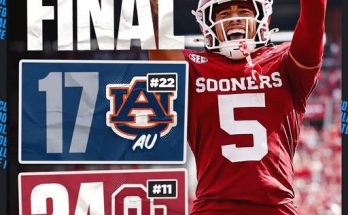A sentiment articulated by an individual player often provides a more nuanced and personal window into the inner workings of a team than any statistical analysis or media pundit’s take. It is a perspective forged in the crucible of daily practice, locker room camaraderie, and the high-stakes pressure of competition. When Isaiah Joe, the sharpshooting guard for the Oklahoma City Thunder, offered his compelling case for why the team is, in his opinion, the best, he was not simply reciting a slogan or making a bold, unsubstantiated claim. He was speaking from a deep well of experience gained over a historic championship season, a season that defied expectations and culminated in the franchise’s first NBA title since its relocation. His viewpoint, articulated with a calm confidence that mirrors the team’s on-court demeanor, centered not on a single superstar or a specific tactical scheme, but on a more profound, almost elemental quality that he believes separates the Thunder from the rest of the league: their collective work ethic and their unparalleled understanding of their individual roles.
This perspective is particularly illuminating given the circumstances of Joe’s own journey. He is not a cornerstone superstar like Shai Gilgeous-Alexander or a top-tier draft pick like Chet Holmgren, but a valuable role player who has had to fight for his place in the rotation.1 His path to a championship ring was paved with consistent, high-level production during the regular season, often as a floor-spacing specialist whose defensive shortcomings were a topic of discussion during the playoffs.2 For a player who has to be at his best every single night to secure his spot, the emphasis on work ethic is not just a talking point; it’s a lived reality. This personal context lends a significant amount of weight to his words. When he speaks of the team’s commitment to hard work, he is speaking about a philosophy he has embodied, a principle that allowed him to contribute meaningfully to a championship-caliber team. He knows that his shooting is a product of countless hours in the gym, and he sees that same dedication in every one of his teammates, from the franchise’s most revered player to the last man on the bench.
Joe’s conviction is further rooted in the exceptional chemistry that has been a defining characteristic of this Thunder squad. He has spoken about their “really good bond” and how their closeness off the court directly translates to their success on it.3 This is not a superficial, manufactured chemistry, but a genuine and deep-seated connection that allows for a level of trust and communication that few other teams possess. This bond enables players to hold each other accountable without resentment. As Joe explained, they can “criticize each other in respectful ways,” and each player has developed the maturity to “know how to react to that.” In a high-pressure, competitive environment where egos can easily clash, this is a rare and invaluable asset. It allows for honest conversations and real-time adjustments, which are critical in the tight margins of a playoff series. The ability to give and receive constructive criticism is a sign of a truly cohesive unit, one that prioritizes the team’s success above all else. This culture of mutual respect and open communication is a testament to the leadership of the coaching staff, particularly head coach Mark Daigneault, and the ethos that has been cultivated by general manager Sam Presti. It’s a culture that champions unselfishness, and Joe’s role as a potent perimeter threat is a perfect example of how that selflessness manifests on the court. He is an offensive weapon who can single-handedly change the momentum of a game with his shooting, but his success is a direct result of the space created by his teammates’ penetration and gravity. He knows his job is to be ready to shoot when the ball finds him, and he trusts that his teammates will make the pass. This symbiotic relationship, built on trust and a shared understanding of roles, is what makes the Thunder’s offense so dynamic and difficult to defend.
The Thunder’s historic 68-14 regular season record, which made them the top seed in the Western Conference, provided the empirical evidence to support Joe’s claims.4 While a regular season is not the same as a playoff run, the relentless dominance they displayed was a direct result of the principles Joe highlighted. They were a team that came to work every night, a group of players who understood that their collective success was a sum of their individual contributions. They didn’t just win games; they often dominated them, a reflection of their superior work ethic and preparation. Their ability to persevere through the grind of an 82-game season without a significant drop-off, even as other teams battled injuries or inconsistency, speaks volumes about the depth of their roster and the strength of their locker room culture. For Joe, this consistency was not a fluke; it was the inevitable outcome of a team that simply does things “a lot better than other teams” when it comes to the fundamentals of work ethic and role definition.
In the end, what Isaiah Joe’s comments reveal is a deep-seated belief in the power of the collective. He sees a team where every player, from the superstar to the role player, is fully bought into a system and a philosophy that prioritizes winning above personal accolades. He sees a team where success is a shared responsibility and where the bond between teammates is a genuine source of strength. His perspective offers a powerful counter-narrative to the idea that a championship team is simply a collection of elite talent. While the Thunder certainly have their share of stars, Joe’s insights suggest that their true advantage lies in something far more intangible and difficult to replicate: the character of their locker room. This championship was not just a victory of skill, but a triumph of culture, chemistry, and an unyielding commitment to the grind. As the Thunder enter the next season as the defending champions, Joe’s words will serve as a reminder of the foundational principles that brought them to the pinnacle of the NBA, and the reason they believe they can stay there.



